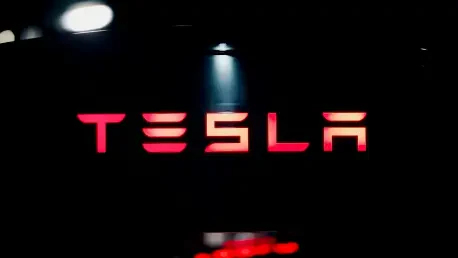Imagine a corporate giant like Tesla, a pioneer in electric vehicles, making headlines not for a groundbreaking innovation but for a staggering $29 billion stock award to its CEO, Elon Musk, amidst legal battles and shareholder unrest. This bold move has ignited heated debates across the business and tech communities, raising questions about corporate governance, leadership focus, and market strategy. This roundup gathers diverse perspectives from industry analysts, legal experts, and shareholder advocates to unpack the implications of Tesla’s decision, offering a balanced view on whether this award is a strategic masterstroke or a risky gamble.
Diverse Voices on Tesla’s Compensation Decision
Industry Analysts: A Strategic Retention Tool?
A prominent perspective among market analysts centers on the stock award’s potential to secure Musk’s long-term commitment to Tesla. Many argue that granting 96 million shares of restricted stock at $23.34 per share could anchor Musk’s leadership through at least 2030, providing stability during turbulent times. This view emphasizes the importance of Musk’s visionary role in driving Tesla’s innovation, particularly as the company navigates a competitive electric vehicle landscape.
However, not all analysts are convinced this move addresses deeper issues. Some point to Tesla’s recent financial struggles, including a significant drop in quarterly profits from $1.39 billion to $409 million, as evidence that compensation alone cannot solve systemic challenges. They suggest that while the award may boost investor confidence temporarily, as seen in a 2% pre-market stock rise, it risks overshadowing the need for operational focus and strategic reinvention.
A third angle from this group highlights the timing of the award, noting it comes just months after a Delaware court revoked Musk’s previous $56 billion pay package due to governance flaws. Analysts in this camp question whether tying Musk’s future to such a massive financial incentive might invite further scrutiny or legal challenges, potentially undermining the intended stability.
Legal Experts: Governance Concerns Loom Large
Legal commentators offer a cautious take on Tesla’s latest compensation package, focusing on the fallout from the Delaware court ruling by Chancellor Kathaleen St. Jude McCormick. They note that the revocation of Musk’s 2018 package over sham negotiations with non-independent directors sets a precedent for intense scrutiny of corporate boards. The decision to award a $345 million fee to plaintiff lawyers, rather than the requested $5 billion, further underscores the judiciary’s focus on fairness in such cases.
Many in the legal field warn that this new $29 billion award could face similar challenges if governance processes are perceived as inadequate. They argue that Tesla’s formation of a special committee to reassess Musk’s pay is a step in the right direction, but transparency remains critical. Without clear communication, the risk of shareholder lawsuits or regulatory pushback looms large.
Another concern raised is the ongoing appeal of the prior ruling, which keeps Tesla entangled in legal uncertainty. Experts suggest that until these disputes are resolved, any new compensation structure might be viewed skeptically by courts and investors alike, potentially destabilizing the company’s efforts to project confidence through this award.
Shareholder Advocates: A Divided Community
Voices from the shareholder community reveal a deep divide over Tesla’s direction and Musk’s compensation. A significant group of over 20 investors has expressed frustration, urging compliance with Texas state law for an annual meeting to address grievances. Their concerns are fueled by a 25% stock decline since the start of this year, reflecting broader dissatisfaction with financial performance and leadership priorities.
On the flip side, some shareholders see the stock award as a necessary evil to retain Musk’s expertise, despite his controversial external engagements. They argue that his ability to innovate remains Tesla’s strongest asset, and a substantial incentive ensures his focus, even if only partially, stays on the company’s growth and technological edge.
Yet, a third perspective among investors questions whether Musk’s political affiliations, including ties to President Donald Trump and involvement in government restructuring efforts, are diluting his effectiveness as Tesla’s leader. This group worries that such distractions could further erode trust and hinder the company’s ability to address pressing competitive threats in the market.
Market Strategists: Competitive Context and Risks
Insights from market strategists bring attention to Tesla’s position in an increasingly crowded electric vehicle sector, where Detroit automakers and Chinese manufacturers are closing the gap. They argue that while Musk’s leadership is vital, the company’s falling revenue and missed Wall Street expectations signal a need for broader strategic shifts beyond executive compensation.
A contrasting view suggests that the stock award might indirectly bolster Tesla’s market stance by signaling to competitors and investors alike that Musk remains committed. Strategists in this camp believe that such a high-profile move could deter rivals from underestimating Tesla’s resolve, even as financial metrics paint a challenging picture.
However, a more critical take warns that internal drama around compensation risks diverting resources and attention from innovation. These strategists stress that Tesla must prioritize product development and market expansion over high-stakes financial maneuvers, lest it lose ground to more agile competitors capitalizing on current industry trends.
Reflecting on the Broader Implications
Looking back, the discussions surrounding Tesla’s $29 billion stock award to Elon Musk reveal a complex tapestry of hope, concern, and skepticism among stakeholders. Industry analysts see it as a retention strategy with caveats, legal experts highlight persistent governance risks, shareholder advocates remain split on its merits, and market strategists underscore the need for focus amid competition. These varied insights paint a picture of a company at a pivotal moment, balancing visionary leadership with operational and legal challenges. Moving forward, Tesla could benefit from enhancing board transparency, actively engaging with investors to rebuild trust, and channeling resources into innovation to counter market pressures. As this saga unfolds, it becomes clear that the next steps—whether through legal resolutions or strategic pivots—will shape not just Tesla’s trajectory but also set benchmarks for corporate compensation practices in the tech world.









